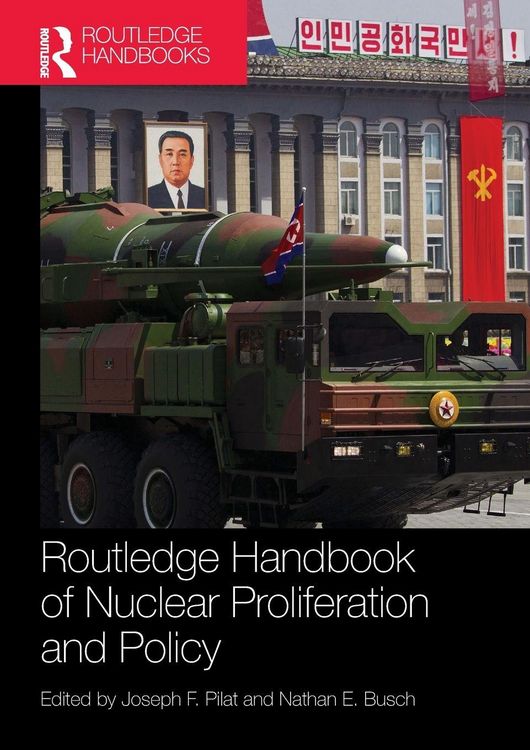Foreword 1. Nuclear Proliferation: Future Unlike the Past?, Joeseph F. Pilat and Nathan E. Busch PART I: Identifying the Threats 2. The Global Nuclear Environment: President Obama’s Vision Amid Emerging Nuclear Threats, Michael Nacht 3. Proliferation Risks in the Middle East/North Africa, Adbullah Toukan 4. Iran, Gregory F. Giles 5. Nuclear Proliferation, Deterrence and Strategic Stability in East Asia: China and Japan in a Changing Strategic Landscape, Michito Tsuruoka 6. North Korea’s Nuclear-Weapon Program: Implications for the Nonproliferation Regime, Sun Young Ahn and Joel S. Wit 7. South Asia: Strategic Competition and Nuclear Policies, Feroz Hassan Khan 8. India and the Global Nuclear Nonproliferation Regime: An Assessment, Arvind Gupta and Kapil Patil PART II: Nonproliferation, Counter-proliferation, and Disarmament 9. An NPT Net Assessment: Flawed, Problematic, and Indispensable, Christopher A. Ford 10. The Future of the NPT and the Nuclear Nonproliferation Regime, Joseph F. Pilat 11. The IAEA and International Safeguards, Laura Rockwood 12. Export Controls, Sibylle Bauer 13. The Comprehensive Test Ban Treaty (CTBT), Ola Dahlman 14. A New Path Forward for the CTBT, Paul Robinson 15. Policy and Technical Issues Facing a Fissile Material (Cutoff) Treaty, Zia Mian and Frank N. von Hippel 16. Deterrence, Defense, and Preventive War, Michael Rühle 17. Counterproliferation and the Use of Force, Robert S. Litwak 18. Security Assurances and Nuclear Nonproliferation, Wyn Q. Bowen and Luca Lentini 19. Nuclear Forensics, Klaus Mayer and Alexander Glaser 20. Interdiction and Law Enforcement to Counter Nuclear Proliferation, Susan Koch 21. Economic Sanctions in Furtherance of Nonproliferation Goals, Dianne E. Rennack 22. Bilateral and Multilateral Arms Reduction (START/Global Disarmament), Steven Pifer 23. Nuclear and WMD Free Zones, Susan Burk 24. Latin America’s Road to a Region Free of Nuclear Weapons, Rafael Mariano Grossi 25. The WMD-free Zone in the Middle East: Where is it Heading?, Mohamed I. Shaker 26. Restraint and Rollback, Benoit Pelopidas 27. The Role of Technology in Monitoring and Verification, Amy F. Woolf PART III: Nuclear Energy and Security 28. Nuclear Power and Proliferation, Jacques Bouchard 29. Nuclear Power and Proliferation, Tatsujiro Suzuki 30. Advances in Proliferation Resistant Technologies and Procedures, Yusuke Kuno 31. Multinational Approaches to the Nuclear Fuel Cycle, John Carlson 32. Reducing the Risks of Nuclear Theft and Terrorism, Matthew Bunn and Nickolas Roth 33. Industry Efforts to Address Nuclear Security, Roger Howsley 34. Illicit Trafficking in Nuclear Materials: Assessing the Past Two Decades, Lyudmila Zaitseva 35. Cooperative Threat Reduction and its Lessons, Andrew C. Weber and Anya Erokhina

